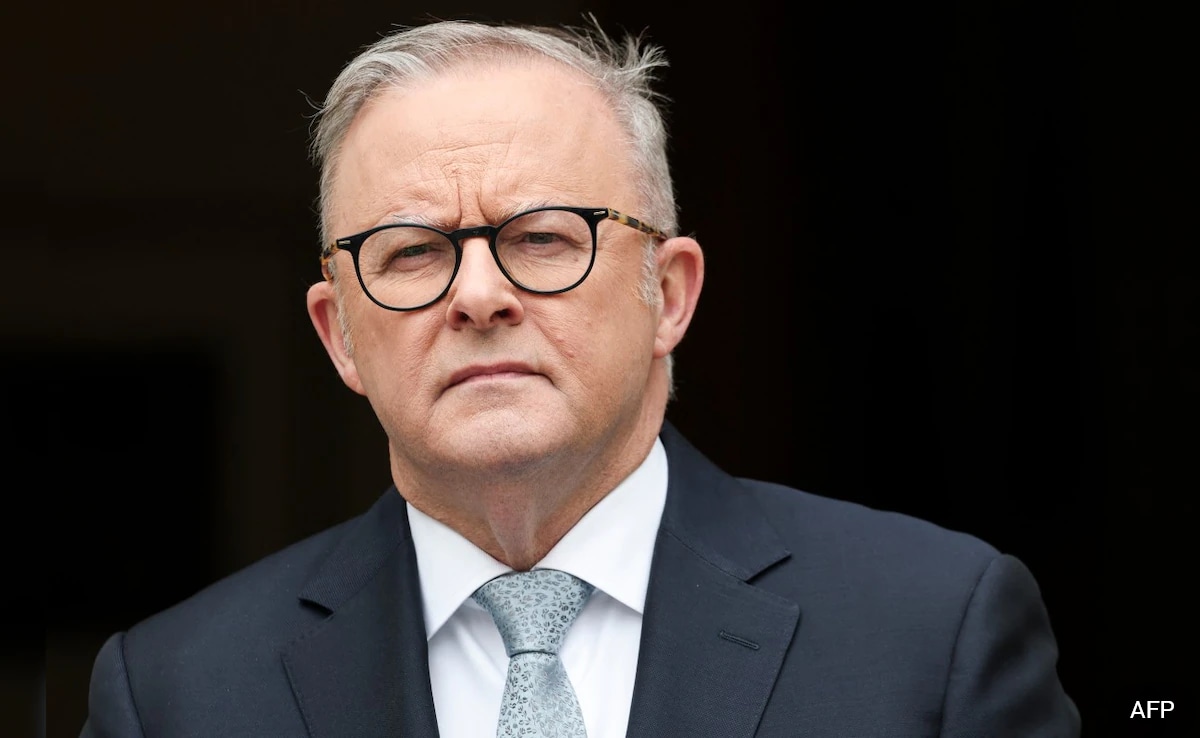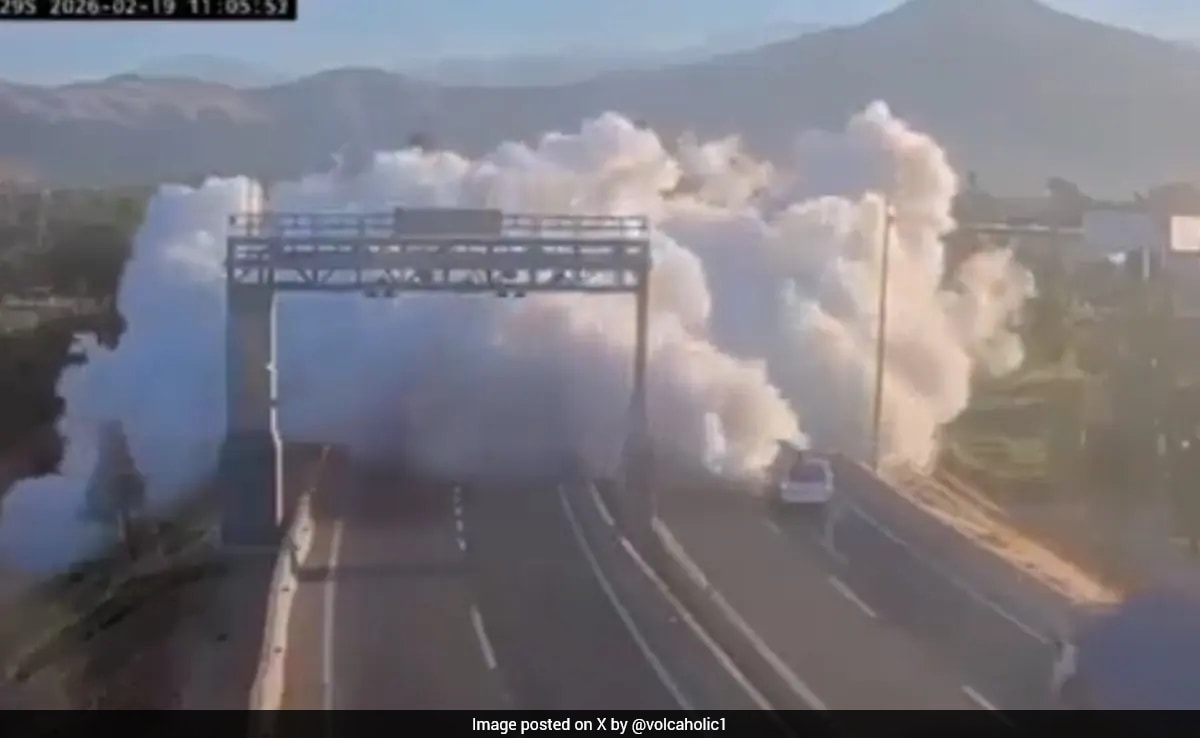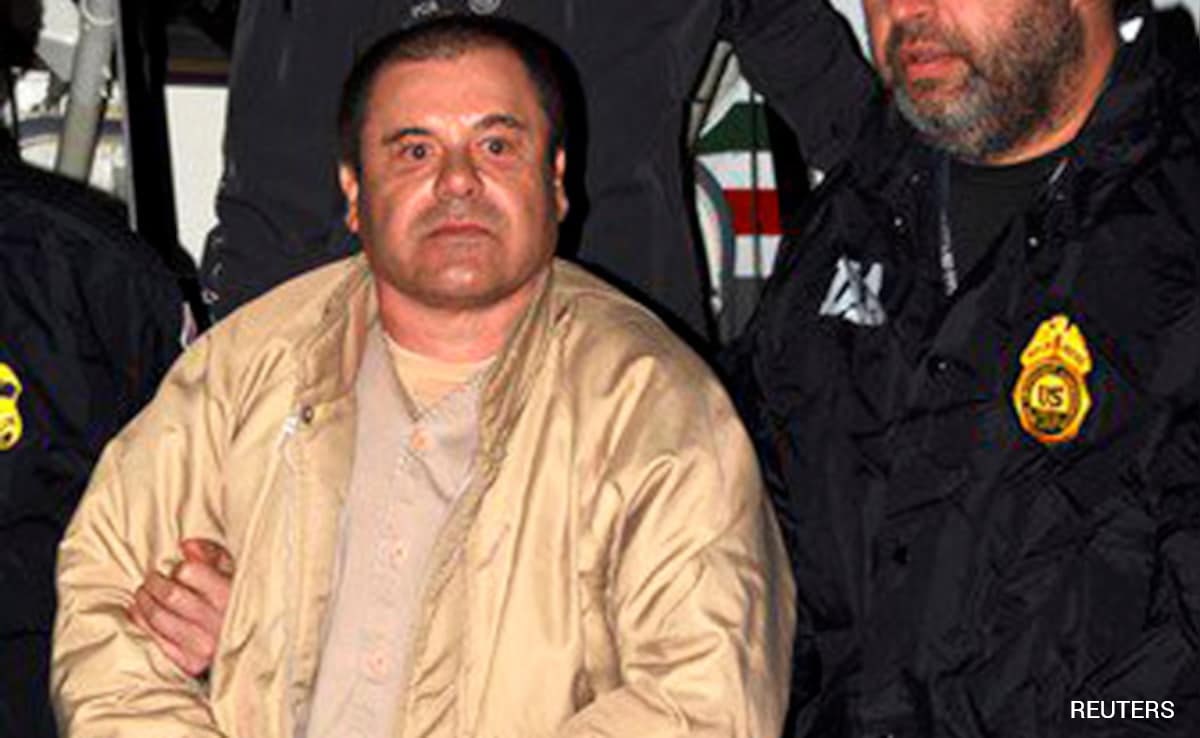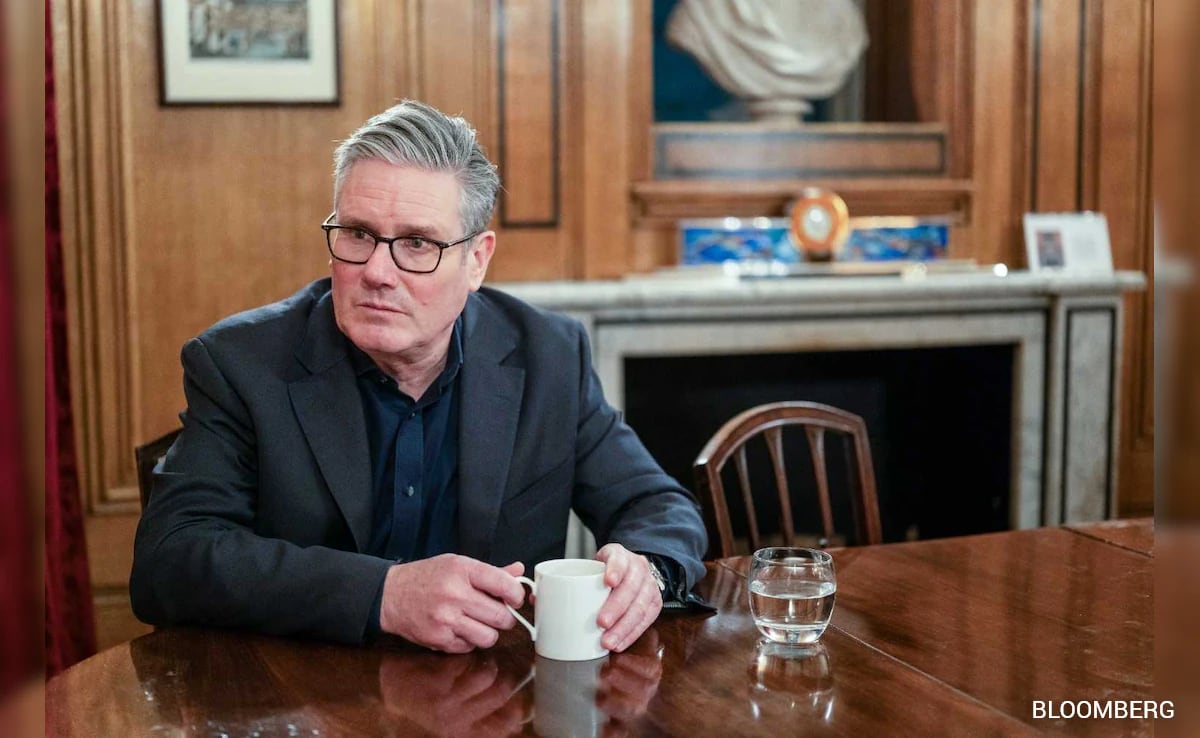“This undermines the whole architecture of global security,” Zelensky said. “They are destroying everything.”
Prior to those remarks, U.S. Secretary of State Antony Blinken said the alleged actions in the Kyiv suburb of Bucha were a “deliberate campaign to kill, to torture, to rape, to commit atrocities.”
European Commission President Ursula von der Leyen said earlier the E.U. will impose an import ban on coal worth more than 4 billion dollars per year as part of new sanctions against Moscow in response to the mounting evidence of atrocities in the city northwest of the Ukrainian capital, saying the violence “can not and will not be left unanswered.” The new measures will need approval from all 27 member states.
Here’s what to know
Zelensky accuses Russia of atrocities, says ‘entire families’ were killed
Return to menuUkrainian President Volodymyr Zelensky accused Russia of committing a broad range of war crimes, charging during a meeting of the U.N. Security Council that Russian forces killed unarmed civilians and children, raped women, crushed people in their cars with tanks and burned bodies.
“They killed entire families, adults and children, and they tried to burn their bodies,” Zelensky said. “This undermines the whole architecture of global security,” he added. “They are destroying everything.”
The Ukrainian leader addressed the council via video link after his visit to the Kyiv suburb of Bucha, where Russian forces are accused of massacring civilians. The visit comes as the United States and European nations demand accountability and seek additional sanctions and the expulsion of Russia from the U.N. Human Rights Council.
Zelensky used graphic terms in accusing Russia of atrocities.
“They were killed in their apartments and houses,” he said. “Civilians were crushed by tanks while sitting in their cars in the middle of the road.”
Moscow has denied any involvement in the attacks and has accused Ukraine of manipulating photos. But the U.N. meeting underscored Moscow’s isolation on the world stage as U.N. Secretary General António Guterres and leading nations excoriated Russia for the “senseless loss of life” and “destruction of civilian infrastructure.”
Zelensky emphasized that the atrocities in Bucha are just “one example of what occupiers have been doing in our land for the past 41 days.”
“The world has yet to learn the full truth,” he said.
If the United Nations in incapable of preventing violations such as Russia’s in Ukraine, and of fostering peace, it should dissolve itself, Zelensky said. “Admit it if there is nothing you can do besides conversation.”
He called for Russian leaders and soldiers he accused of war crimes to be brought before a special tribunal to be tried “immediately.”
To Ukraine, he said, “the Russian leadership feels like colonizers in ancient times … they need our wealth.” Russia, he added, “wants to turn Ukraine into silent slaves.”
Russian troops are “looting openly…they are stealing everything, beginning with food and ending with gold earrings pulled out and covered with blood.”
Calling for reform of the entire U.N. system, Zelensky said that Russia is “turning a veto in the Security Council into the right to die.”
France opens war-crimes probes as more nations expel Russian diplomats
Return to menuFrench prosecutors opened three probes Tuesday into potential war crimes committed by Russian troops against French nationals in Ukraine — as at least six European countries joined other European nations in expelling Russian diplomats.
Pressure has increased on European governments to respond to allegations that Russian soldiers committed war crimes in Bucha, a suburb northwest of Kyiv. Ukrainian authorities and independent journalists have reported finding mass graves and streets lined with dead civilians in Bucha after Russian troops began to withdraw from the area.
Ukrainian President Volodymyr Zelensky is expected to demand an investigation into what took place in Bucha at a meeting of the United Nations Security Council on Tuesday.
Russia, which has denied killing civilians in Ukraine and claimed the images from Bucha are fake, criticized the expulsions and vowed to retaliate.
Drone video shows killing, destruction in Bucha weeks before withdrawal
Return to menuDrone video posted to Telegram, verified by Bellingcat Tuesday and confirmed by The Washington Post on Tuesday shows what appears to be a Russian BMD-2 infantry fighting vehicle firing at and apparently killing a civilian on a bicycle. The video was filmed in the weeks after Russian forces occupied Bucha, a city just northwest of Kyiv, according to an analysis of satellite imagery and available visuals.
The video shows a cyclist traveling northwest along Vokzal’na Street, which appears nearly deserted. A block over, people move around a column of 17 parked Russian military vehicles. As the cyclist approaches the corner to turn left and travel west on Yablunska Street, a small puff of white smoke appears in front of the Russian BMD-2 closest to the corner. As the cyclist continues to turn, moving toward the military vehicles, at least five more bursts appear. The cyclist is not seen again.
High-resolution satellite imagery taken March 11 and provided to The Post by the satellite imagery company Planet Labs also shows a destroyed house at the southwest corner of the intersection where the encounter occurred. The house is intact in the drone video, which suggests that the video was filmed after the Russian takeover but before March 11.
Bucha has seen serious fighting since early in the conflict. Video posted to social media on Feb. 27, just three days after Russian forces invaded Ukraine, shows widespread destruction less than half a mile from where the cyclist was hit. The video, which was verified by The Post, shows multiple houses on fire, destroyed military vehicles and at least one body.
Sarah Cahlan in Washington contributed to this report.
Milley backs permanent bases, but not permanent forces, in Eastern Europe
Return to menuThe chairman of the Joint Chiefs of Staff, Gen. Mark A. Milley, endorsed the idea of establishing permanent bases in Eastern Europe — but not basing troops there permanently.
“My advice would be to create permanent bases but don’t permanently station,” Milley said Tuesday during a hearing before the House Armed Services Committee. “So you get the effect of permanence by rotational forces, cycling through permanent bases.”
It would be a cheaper undertaking, Milley explained, because it would remove the need for things like family housing and schools. He also said that Eastern European countries might be willing to foot the bill for building those bases if the United States agreed to keep them steadily supplied with forces.
Defense Secretary Lloyd Austin, testifying alongside Milley, was more circumspect, saying that “if NATO deems it’s appropriate to change its footprint, then certainly we’ll be a part of that.” He said NATO allies would probably discuss the matter at the next planned summit in June.
NATO to discuss ways to further help Ukraine as Russia changes strategy
Return to menuNATO foreign ministers will discuss ways to further help Ukraine during meetings Wednesday and Thursday as Russia changes its strategy in the war and focuses on southeastern Ukraine, NATO Secretary General Jens Stoltenberg said at a news conference in Brussels.
Although Ukraine has put up fierce resistance, Moscow hasn’t abandoned its ambitions, he said, moving troops away from Kyiv and toward areas in the south.
“In coming weeks, we expect a further Russian push in eastern and southern Ukraine to try to take the entire Donbas and to create a land bridge to occupied Crimea,” Stoltenberg said. “So this is a crucial phase of the war.”
For that reason, he said, allies will discuss ways to provide further support to Ukraine, in the form of antitank weapons, air-defense systems and other military equipment, as well as cybersecurity assistance and equipment to help fend off biological and chemical threats. Allies have also increased financial and humanitarian aid to the country, Stoltenberg said.
The secretary general said he expects more will be done for vulnerable NATO partners, such as Georgia and Bosnia. “We can help our partners strengthen their resilience and prevent any future aggression,” he said.
On the killings in Bucha and other Ukrainian areas occupied by Russian forces, Stoltenberg said that “targeting and murdering civilians is a war crime” and that NATO allies are supporting investigations, including through the International Criminal Court and the United Nations.
Ukrainian Foreign Minister Dmytro Kuleba is set to join the meetings Thursday, giving an update on the state of the peace negotiations and other developments. The European Union, Finland, Sweden, Georgia and NATO’s Asia-Pacific partners (Japan, Australia, New Zealand and South Korea) also will participate.
U.S. blocks Russian bond payments, pushing Moscow closer to default
Return to menuThe United States has blocked Moscow from making more than $600 million in payments on its sovereign debt, pushing it closer to default over its invasion of Ukraine.
Though the Russian government’s foreign currency reserves have been frozen for weeks, the Treasury Department has been allowing its bank, JPMorgan Chase, to process them on a case-by-case basis. On Monday, it told the bank not to process transactions anymore as two large bond payments came due, according to a person familiar with the matter who spoke on the condition of anonymity to discuss sensitive financial matters.
A Treasury Department spokesperson said U.S. banks will block all Russian debt payments moving forward, forcing the Kremlin to dip into its dwindling supply of dollars or risk default.
“This will further deplete the resources [Russian President Vladimir] Putin is using to continue his war against Ukraine and will cause more uncertainty and challenges for their financial system,” the spokesperson said.
Russia now has 30 days to find another way to remedy the two large payments before slipping into default, according to two people familiar with the matter. Leading ratings agencies downgraded Russian debt to “junk” status several weeks ago.
The news was reported earlier by Reuters. The Russian Embassy in Washington did not respond to a request for comment.
Russia, without evidence, accuses Ukraine of staging civilian deaths
Return to menuAs scenes of devastation in Bucha, near Kyiv, spark calls for war-crime probes, Russia without evidence accused Ukraine of staging scenes of civilian deaths in Moshchun, a northern suburb of the capital, to drum up more outrage against Russian forces.
Hours ahead of a planned meeting of the U.N. Security Council to discuss Ukraine’s allegations of Russian war crimes in Bucha, another suburb of Kyiv, Russia’s Defense Ministry accused Ukrainian forces on Tuesday of fabricating scenes “of civilians supposedly killed by the violent actions of the Russian armed forces” in Moshchun, and of planning “similar events” in other cities in the east, “for subsequent distribution in the Western media.”
It did not provide evidence to back up the claim. The Kremlin has previously claimed that images from Bucha showing mass graves and dead bodies on the ground were fake.
Over the weekend, Ukrainian officials said the mayor of Motyzhyn, a town west of the capital, was found dead, days after the country’s attorney general claimed that Russian forces seized her, her husband and her son. The mayor, Olga Sukhenko, was killed in captivity, Ukrainian Deputy Prime Minister Iryna Vereshchuk said Sunday, calling it “a war crime.”
Ukrainian officials have said more evidence of war crimes could emerge in the areas around Kyiv occupied for weeks by Russian troops, as they retreat and appear to refocus on eastern Ukraine. Zelensky is expected to demand an investigation into what took place in Bucha at the U.N. Security Council meeting Tuesday.
Blinken says Russian atrocities in Bucha were ‘deliberate campaign’
Return to menuSecretary of State Antony Blinken said the alleged Russian massacres in the Kyiv suburb of Bucha are “not the random act of a rogue unit” but a “deliberate campaign to kill, to torture, to rape, to commit atrocities.”
The top U.S. diplomat’s remarks, given to reporters just before his flight to Brussels for meetings with NATO allies, are the most specific to date in accusing the Russian government of premeditated war crimes.
“The reports are more than credible,” Blinken said. “The evidence is there for the world to see. This reinforces our determination and the determination of countries around the world to make sure that one way or another, one day or another, there is accountability for those who committed these acts.”
Moscow has denied any involvement in the attacks and has accused Ukraine of manipulating photos of atrocities.
Blinken dodged a question about whether the United States has evidence that specific high-level Russian generals ordered the actions in Bucha. But he said the United States would continue to assemble evidence to support accountability at the United Nations and elsewhere.
“In all of these instances, there’s a very important effort to put the evidence together, to compile, to document it, to support the different investigations that are going on,” he said.
After Bucha massacre, E.U. to ban Russian coal
Return to menuThe European Commission is proposing a ban on Russian coal as part of a new package of sanctions, a move that responds to possible war crimes in Bucha, European Union officials said Tuesday.
European Commission President Ursula von der Leyen said the latest sanctions package would ban Russian coal imports, sanction four Russian banks and ban Russian vessels from E.U. ports, among other measures. It still needs backing from the bloc’s 27 member states.
“These atrocities cannot and will not be left unanswered,” she said Tuesday. “It is important to sustain utmost pressure on Putin and the Russian government at this crucial point.”
The package notably does not include sanctions on Russian oil or natural gas — but there are signs that oil could be next.
Kyiv mayor: Payments to Russia carry the ‘blood of Ukrainian people’
Return to menuThe mayor of Kyiv has issued a stark admonishment to European politicians, telling them Tuesday that commercial dealings with Russia risk carrying the “blood of Ukrainian people.”
Dressed in military garb and addressing a mayors conference via video link in Geneva, Vitali Klitschko called for tougher economic sanctions to be placed on Moscow and for financial ties to be severed.
“Every euro, every cent that you receive from Russia or that you send to Russia has blood. It is
.png)











 English (United States) ·
English (United States) ·  Turkish (Turkey) ·
Turkish (Turkey) ·